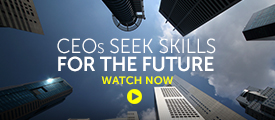According to CSC’s Leading Edge Forum, less than 4 out of 10 companies are ready to take advantage of the new business opportunities arising from developments in digital technology.
In the hospitality industry there have been some digital successes, and some companies struggling to keep up. A good digital culture needs good leadership and the right partnerships.
In this briefing four hospitality experts discuss building digital into the business plan:
Depending on a business’s resources, ‘becoming digital’ will mean different things, large companies may invest money in new plans and new specialist staff, independents may look into what platforms and partnerships they can use to help themselves.
While digital is changing the way business works, it is also creating jobs and, according to Deloitte, is boosting the economy. A report from Deloitte on the impact of technology on jobs in the UK found that over the past 15 years technology-driven change has added £140 billion to the UK’s economy in new wages.
The report states that ‘In the future, business will need more skills, including: digital know-how, management capability, creativity, entrepreneurship, and complex problem solving.’ Business leaders will already be keenly feeling this need and it will only continue, which is why having a plan that incorporates digital and having people to push this agenda forward is essential.
Research from McKinsey&Company also highlights the need for digital leadership. They found that ‘90 percent of top digital performers have fully integrated digital initiatives into their strategic-planning process.’ They say that there has already been an increase in digital focused executive positions. They found that ‘CDO (Chief digital officer) roles doubled from 2013 to 2014 and is expected to double again this year.’
If you’ve been sent to this page and you’re not yet on the circulation list to receive these regular briefings and you would like to sign up, you can do see here. It’s free.
Video clips produced by ybc.tv for the Hospitality Channel, including interview from industry conferences such as the IHIF conference as well as specific Hospitality Channel shoots.



